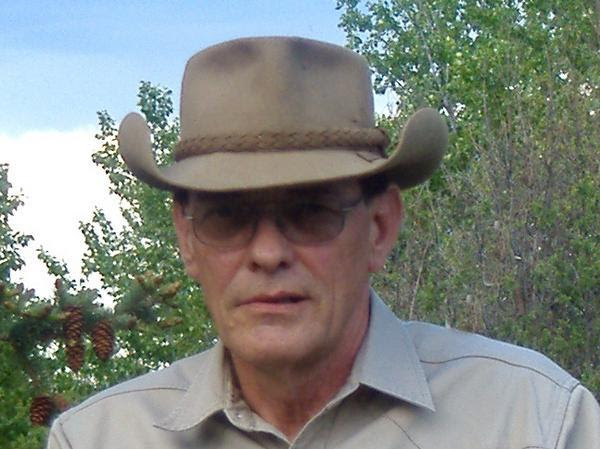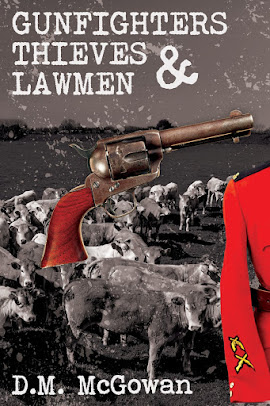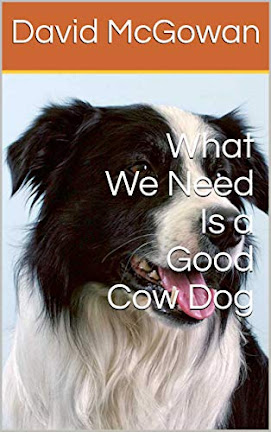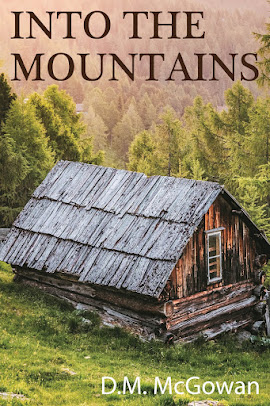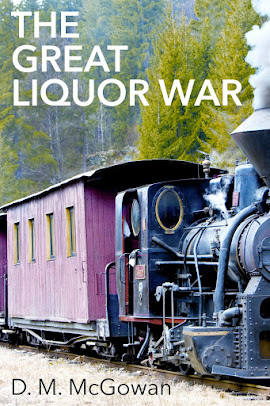Once again we remember some of the destructive actions we have been lead into, often through circumstances but more often than not by those who are supposed to be our representatives.
As I have don in the past, here are a few pictures accompanying a poem I wrote.
Below that, my story inspired by a very good friend who was involved in the Battle of Britain and later training fighter pilots.
Bothe these offerings also appear in my collection of short stories and poems, "People of the West" A Timeline." I f you click on my pic to the right you'll see where to access it.
Deacon
By D.M. McGowan
Before men started shooting at him
with 7.92 mm bullets Harry Burnside had been a singer. He stood in front of
fifteen, twenty and sometimes thirty-man orchestras and sang the Dorsey,
Kenton, or Ellington songs or whatever else the crowd in front and the band
behind wanted to hear. He had worked his magic in Detroit, Chicago, Pittsburgh, Cincinnati and his home town, Windsor, Ontario.
Harry thought it was only right to use his natural talent, his voice, to make
at least part of his living. It had also been a great way to start a young life
and learn the music and entertainment business from professionals. It was only
incidental that it was the perfect place for a teenager to learn from the
masters how to party.
Sometimes horrendous events are
necessary to save a young man from himself. In Harry’s case it was the war in Europe that brought a young man’s party life to a close,
at least temporarily. Of course it also accelerated the danger in that life.
Not that Harry rushed to a recruiting
station in the autumn of 1939. Some of his young friends and even the older men
he worked with certainly did. It was one of the older musicians who convinced
him signing up for service was the thing to do.
“Folks ‘r sayin’ this here war is
gonna be over in no time,” Marvin, a trumpet player said. “They is sorely
mistaken. I bin readin’ up on these here Germans an’ they got ‘em an army.
British ain’t got nothin’ an’ they’s gonna get whacked.”
“Are you suggesting we Canadian
boys should go over there and get whacked, as you say, right along with them?”
Harry asked.
“First off, I ain’t a Canuk, I’m a
southern boy,” Marvin said. “Second, when things get tough they’ll be comin’
for us anyway. Might as well sign up for somethin’ you want t’ do instead o’
somethin’ the government thinks you’d be good at.”
“You’re country isn’t in it,” Harry
pointed out.
“Not yet,” Marvin responded. “Now,
you’ve been workin’ here an’ there along with singin’. I don’t got no income
but my trumpet. A man signs up he’ll get three squares a day an’ a cot.”
Harry took a drink of his whiskey
and water and cast his gaze around the musicians gathered in the late night or,
to those who were not musicians, early morning booze hall.
“You know, Marv, I’ve always wanted
to learn to fly a plane,” Harry said.
Marvin clapped him on the shoulder.
“Now you’re talkin’, boy. Royal Canadian Air Force. What say we go sign up
first thing in the mornin’?”
Harry looked at his watch. “Might I
suggest early this afternoon? I might be awake by then.”
Somewhere between Windsor, Ontario
and Ashford, Kent, Harry lost touch with Marvin,
but not with men from the southern States. Almost half the men stationed on the
airfield were Americans who had travelled north to Canada and signed on with the RCAF.
Though they wore Canadian uniforms
and insignia they were technically in Royal Air Force squadrons. Their squadron
commander was a British major, and Harry’s wing commander a Canadian Lieutenant
or “Leftenant” as the British officers insisted. The other two Canadian pilots
presently assigned to their understaffed wing were actually from Arkansas. In the two man
barracks enjoyed by RAF pilots one of those southerners, Otis Tyler was Harry’s
bunk mate.
“Ah hear we all getting’ new radios
next month,” Otis said as the two pilots walked down the hall one early morning
in late August.
Harry shrugged with one shoulder as
he held the door open with the other hand and let Otis out into the humid dawn.
“Be fine if they’re better than the T9. But if they aren’t, well, I’m starting
to get used to being up there all by myself.”
“Mighty handy fur tellin’ somebody
where you’s ‘bout t’ crash,” Otis noted.
“As long as they work and you’re no
more than a mile away” Harry countered. “The T9 is good for about that far.
You’re probably better off depending on a farmer seeing you go down.”
Otis chuckled.
As they approached the mess hall
their wing leader, Lieutenant Mapes reached the door and opened it for them.
“Good news chaps,” the officer said
as the two non-coms passed through the door he held open for them. “Just spoke
with the CO. We stand down today.”
“Excellent!” Harry said. “Now I can
have some real breakfast and more than one cup of coffee.”
“Yuh all worry too much ‘bout that
coffee thing,” Otis said.
“Quite good policy,” the Lieutenant
said.
“Nothin’ to it,” Otis responded.
“Yuh all just take an empty cola bottle up with yuh.”
“I say, old boy, a bit hard to pee
in a bottle when one is trying to avoid the 109 that is glued to your tail. Not
to mention that bottle flying around loose in the cockpit.”
“Yuh all make sure yuh strap it in
so it don’ fly ‘round,” Otis said. “As fur takin’ a leak when Gerry’s on muh
tail an fillin’ my magic carpet full o’ holes, why ‘bout then I don’ have no
trouble passin’ water.”
Lieutenant Mapes laughed. Harry
grinned and shook his head in resignation.
“Since we aren’t going up to be
shot at, perhaps we could talk about something else?” Harry suggested.
“Our Calm Colonial boy is right
once again,” Mapes said. “We have a day to repair gear.”
“And talk about new radios,” Harry
suggested.
“There isn’t anything to talk
about,” Mapes said. “I’ve heard the same rumours as you men. However, I haven’t
heard anything from the Old Man and I haven’t seen any radios. Other than the 9
in my Spit that quit working entirely the last time I was up.”
Later that day, Otis asked Harry to
join him and some other airmen to study and review the local ladies and pubs.
However, Harry had grown out of the need to wake up with a pounding hangover.
He had already had years of partying. Besides, bringing in bullet scarred
Spitfires had made the drinking bouts seem very unimportant. His mates, often a
year younger or more, still asked him even though he seldom went with them.
An hour after the other pilots had
gone into town Harry walked off the base and caught a ride into Ashford. He
walked the streets for awhile admiring the buildings and the history.
Occasionally a Junkers 88 would fly
across the English Channel very close to the
water, start a steep climb to miss the Cliffs of Dover and release a bomb
mounted to its belly at the end of that climb. The speed of the bomber combined
with the force of the climb would cast that bomb for a very long way and it
would land wherever the laws of physics, geology, and aerodynamics might decide
and no man could say. On that beautiful day in late August, 1940 a building
Harry had admired moments before and at that moment was no more than a block
and a half away, disappeared in a cloud of dust, smoke and noise.
Harry Burnside had been flying over
Britain
for three months. He had been as far as France on a half dozen occasions.
He had no idea how many dog fights he had been in but had shot down three Me
109s and crash landed twice. He had landed successfully in Spitfires that
probably should have quit flying several minutes before. He had been scared out
of his mind on those occasions but had worked his way through it.
That day, on the streets of
Ashford, after the completely random bombing of a very historic building, Harry
Burnside could not control the choking fear.
Looking around he saw the sign for
a pub, the Anvil and Hammer. He stepped through the door and saw ale glasses
stacked on the bar. He turned the pint glass over and said to the barman,
“Whiskey.”
The barman could see by the look on
Harry’s face that discussion might be dangerous. He poured a shot into the ale
glass.
“Fill it,” Harry ordered.
The inn keeper complied.
Harry downed the whiskey and
noticed only in passing that it was smooth, a single malt.
He put the
glass back down on the bar and said, “Again.”
Once it was
full, he downed the second glass.
He remembered
opening the door to his barrack, but very little after that.
Much later
Otis Tyler returned to find his bunk mate, the man who usually refused to go
drinking with his mates, passed out on the floor.
“Burnside,”
he said, as he picked Harry up and placed him on the bunk, “yuh all just like
them travelin’ preachers back t’ home; Preachin’ hell fire an’ brimstone then
next thing yuh got some farmer’s daughter out behind the tent.”
And that is
how Sergeant Pilot Harold Burnside became known as “Deacon.”

Michel-Masionneauve.webp)






